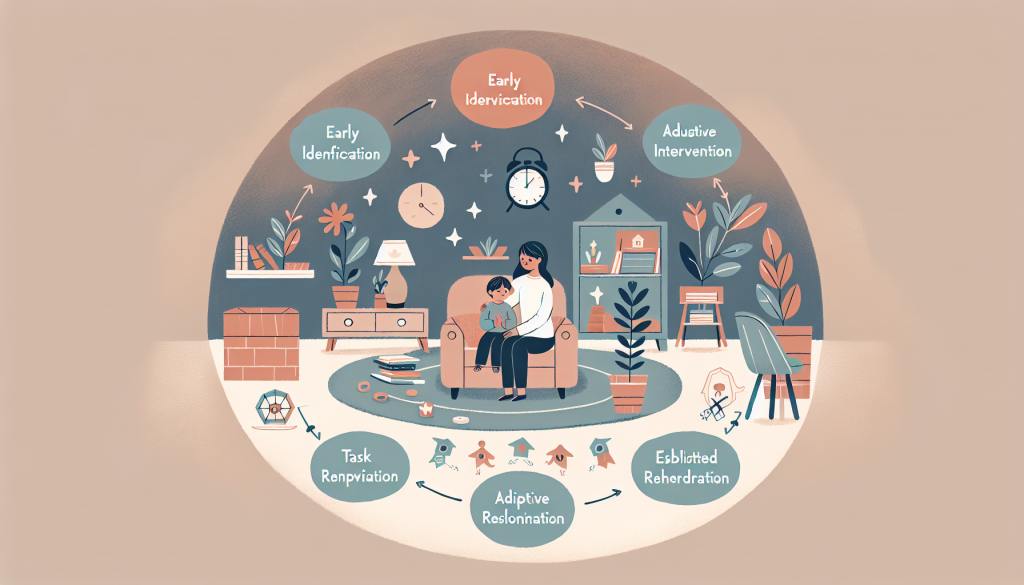“`html
Supporting Children with Learning Disabilities: A Guide for Parents
Introduction
Every child deserves the opportunity to learn, grow, and thrive in an environment that meets their unique needs. For parents of children with learning disabilities, navigating the challenges of education and communication can feel overwhelming. However, with the right knowledge, tools, and strategies, parents can play a pivotal role in their child’s success.
This guide aims to empower parents with practical parenting strategies and insights into supporting learning disabilities. By understanding the psychological and educational needs of their children, parents can foster a supportive and nurturing environment that promotes confidence, autonomy, and self-expression.
Understanding Learning Disabilities
Learning disabilities are neurological conditions that affect how a child processes, understands, and responds to information. They are not a reflection of intelligence or potential but rather differences in brain function. Common learning disabilities include dyslexia (difficulty with reading), dyscalculia (difficulty with math), and dysgraphia (difficulty with writing).
Why Early Identification Matters
Early identification of learning disabilities is crucial for a child’s development and self-esteem. Research shows that early intervention can significantly improve outcomes for children with learning disabilities. Parents should pay attention to early signs, such as difficulty following instructions, trouble with basic academic skills, or frustration during learning activities.
Key Parenting Strategies for Supporting Learning Disabilities
1. Foster a Sense of Safety
Children with learning disabilities often experience feelings of frustration and inadequacy. Creating a safe and supportive environment at home can help alleviate these negative emotions. Encourage open communication, validate their feelings, and remind them that their worth is not determined by their academic performance.
2. Promote Autonomy
Autonomy is the ability to make decisions and take control of one’s own life. For children with learning disabilities, fostering independence can be a powerful confidence booster. Allow your child to make choices, no matter how small, and celebrate their successes as they take ownership of their learning journey.
3. Use Positive Reinforcement
Positive reinforcement is a cornerstone of effective parenting strategies. Praise your child for their efforts, not just their achievements. Recognize the progress they make, even if it seems small. This approach builds resilience and motivates them to keep trying, even when tasks feel challenging.
4. Adapt Your Approach to Learning
Not all children learn the same way. Visual aids, hands-on activities, and technology can make learning more engaging and accessible for children with special needs. Work closely with teachers and specialists to identify the most effective tools and techniques for your child.
5. Collaborate with Educators
Building a strong partnership with your child’s teachers and school is essential for special needs education. Attend parent-teacher meetings, share insights about your child’s strengths and challenges, and advocate for individualized support plans when necessary.
Practical Recommendations for Everyday Parenting
Beyond understanding and strategies, here are some simple yet effective tips you can implement daily to support your child:
- Set a routine: Consistent schedules provide structure and reduce anxiety for children with learning disabilities.
- Break tasks into smaller steps: Large tasks can feel overwhelming. Break them down into manageable steps and celebrate each accomplishment.
- Encourage self-expression: Offer creative outlets like drawing, music, or storytelling to help your child express their emotions and ideas.
- Teach coping skills: Help your child develop tools to manage frustration, such as deep breathing or taking breaks during challenging tasks.
- Stay patient: Progress may be slow, but your patience and support will make a significant difference in your child’s journey.
Remember, your role as a parent is not to “fix” your child but to empower them to thrive in their own way.
Conclusion
Supporting children with learning disabilities requires understanding, patience, and a commitment to their well-being. By fostering a safe and nurturing environment, promoting autonomy, and collaborating with educators, parents can help their children overcome challenges and reach their full potential. Incorporating practical parenting strategies and embracing their unique strengths will not only enhance their academic journey but also strengthen your bond as a family.
For more resources on special needs education and parenting, explore our comprehensive library of expert articles. Together, we can build a brighter future for every child.
“`

